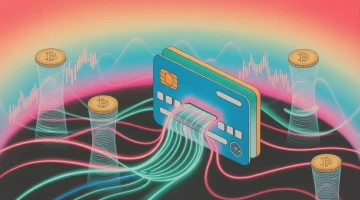Will P2E Lead to Long-Term Online Value Creation?

Table of contents:
In recent years, the emergence of Play-to-Earn (P2E) gaming has sparked a digital gold rush, captivating the attention of gamers, investors, and technologists alike. P2E game development fundamentally transforms traditional gaming paradigms by introducing in-game economies with tangible real-world value. However, amidst the fervor surrounding P2E, a central question looms: Will this phenomenon lead to sustainable, long-term online value creation?
The Potential of P2E Game Development
The online gaming industry has exploded in recent years, with a global market exceeding $170 billion in 2022. However, the emergence of P2E games is shaking things up. P2E introduces a new model where players can not only have fun but also potentially earn real-world rewards for their efforts.
What is P2E?
P2E games refer to a type of digital game that rewards players with cryptocurrency or other digital assets for their gameplay. These assets can have real-world value and can be traded on cryptocurrency exchanges or specialized marketplaces.
Unlike traditional games where in-game items are controlled by the game developer, P2E game mechanics are based on blockchain technology to create unique digital ownership of these items. This allows players to truly own their in-game assets, such as characters, weapons, or virtual land, and freely trade them with other players.
Evolving Game Economies
P2E represents a significant shift in the way game economies function. Previously, in-game economies were closed systems controlled by developers. Players could only acquire and use items within the game itself. P2E game development, on the other hand, creates open economies built on blockchain technology. This allows players to:
- Own In-Game Assets: Through NFTs (non-fungible tokens), players can hold verifiable ownership of virtual items like characters, land, or equipment.
- Trade Assets Freely: Players can buy, sell, or trade their in-game assets like NFTs with other players on dedicated NFT marketplaces or even on cryptocurrency exchanges. This creates a dynamic player-driven economy where the value of assets fluctuates based on supply, demand, and utility within the game.
- Earn Through Gameplay: Players can participate in various activities within the game, such as completing quests, breeding virtual pets, or battling other players, to earn valuable in-game tokens or NFTs. These tokens can then be sold on marketplaces for real-world currency.
This fusion of gaming and real-world economic opportunities is what makes P2E so appealing. Games like Axie Infinity and Decentraland have demonstrated the potential for players to not only enjoy engaging gameplay but also potentially generate income through their activities within the game world.
Challenges and Uncertainties
The P2E gold rush might be exciting, but there are also some important questions to consider before diving in. Here, we'll explore two key challenges that could impact the long-term success of P2E:
Sustainability vs. Hype
The biggest concern surrounding P2E is its ability to last. Just like with any new industry that explodes quickly, there's a risk that the hype surrounding P2E is bigger than the actual benefits. This could lead to a situation where many P2E games are created quickly but then abandoned by players just as fast.
Imagine a scenario where a new P2E game launches with a lot of excitement. Players rush in to buy in-game items and start playing to earn rewards. But what happens if the game itself isn't very fun, or if earning rewards becomes too difficult over time?
Players might get bored and leave the game, causing the value of in-game items to plummet. This "play-to-abandon" scenario could become a real problem for P2E if developers aren't careful to create games that are both fun and sustainable in the long run.
Another challenge is maintaining a healthy balance within P2E economies. In a traditional game, in-game items typically don't have any real-world value. But in P2E games, these items can be bought and sold with real money. This creates a risk of inflation, where the in-game currency becomes less valuable over time.
If players can easily earn a lot of in-game currency, it could become worthless, making the entire P2E system collapse. To avoid this, P2E games need to have strong economic models with mechanisms in place to control inflation and keep the in-game economy balanced. A DappRadar report highlights this concern, stating that over 80% of P2E games launched in 2022 failed to maintain a healthy in-game economy.
Regulations and Legal Issues
The legal landscape surrounding P2E is still unclear, which can be a major hurdle for its widespread adoption. Governments and regulators are still trying to figure out how to handle these new digital economies.
Some P2E games might have features that resemble gambling, which could raise legal concerns depending on the location. Additionally, blockchain technology, which is often used in P2E games, can be vulnerable to security hacks.
For P2E to thrive, there needs to be clear and consistent regulations from governments. These regulations should protect players from scams and ensure the security of their in-game assets. Having clear rules will also help developers build P2E games with confidence, knowing the legal boundaries they need to operate within.
The Future of P2E Games
The excitement surrounding P2E isn't limited to just video games. The concept of play-to-earn and ownership of digital assets has the potential to disrupt and reshape various industries. Here, we'll explore the exciting possibilities of P2E venturing beyond gaming, and then delve into how P2E ecosystems can build a sustainable future.
A World of P2E Applications
Imagine a world where your online activities entertain and potentially generate real-world value. P2E's core principles—rewarding users for their time and effort with valuable digital assets—can be applied to various areas.
The Rise of Virtual Economies: The concept of in-game economies with transferable assets can extend to virtual worlds like the Metaverse. Users could potentially earn rewards for participating in virtual events, creating content, or even owning virtual land. A report by McKinsey & Company predicts that the metaverse will generate up to $5 trillion in value by 2030.
Revolutionizing Learning: Imagine educational platforms that reward students with tokens for completing lessons or demonstrating mastery. These tokens could hold value within the platform, allowing students to unlock new learning experiences or even be exchanged for educational resources or potential discounts on online engineering degree costs. This could open doors for more accessible and engaging learning experiences, particularly for those facing financial barriers to traditional education.
Decentralized Finance (DeFi) with Gamification: The complex world of DeFi development, which involves peer-to-peer financial services built on blockchain technology, could become more accessible through gamified experiences. Users could be rewarded for participating in DeFi protocols like lending or borrowing, potentially making the world of decentralized finance more engaging for a wider audience.
Building a Sustainable Future for P2E
For P2E to thrive in the long run, addressing some key challenges is crucial. Here's how P2E ecosystems can build a sustainable future:
Community-Driven Governance: Placing power in the hands of the community through robust governance models fosters transparency and accountability. This could involve allowing players to vote on game updates, economic changes, or even future development plans.
Focus on User Experience and Engagement: Just like with any successful product, keeping users engaged is paramount. P2E games and applications need to prioritize fun and engaging experiences that go beyond just the earning potential. Developers should continuously adapt and evolve their offerings to meet the changing needs and expectations of their user base.
Prioritizing Innovation and Collaboration: The P2E landscape is constantly evolving, and fostering a culture of innovation will be crucial for long-term success. Collaboration between developers, players, and other industry players can lead to groundbreaking advancements and a more robust P2E ecosystem.
Evolving Past the Hype: Can P2E Revolutionize Online Value Creation?
In conclusion, the rise of P2E represents a paradigm shift in how we conceive of and engage with online value creation. While the potential for prosperity is undeniable, significant challenges and uncertainties loom on the horizon. Navigating these complexities will require collaboration and innovation from all stakeholders involved.
Ultimately, the future of P2E hinges on our ability to strike a delicate balance between innovation and responsibility, paving the way for a more equitable and sustainable digital economy. As the dust settles on the P2E gold rush, one thing remains certain: the journey toward long-term online value creation has only just begun.
We ❤️ Development
Follow us on social media to receive the hottest blockchain development updates
Twitter ⚡️Telegram⚡️LinkedIn⚡️Facebook












%201.webp)



